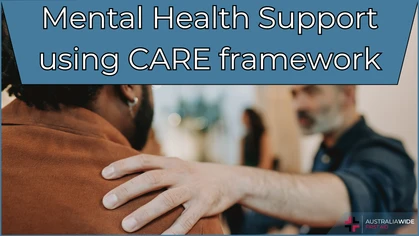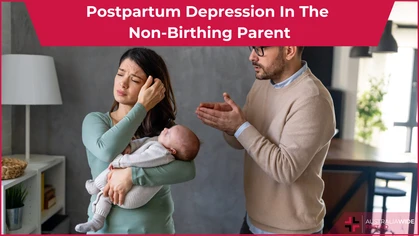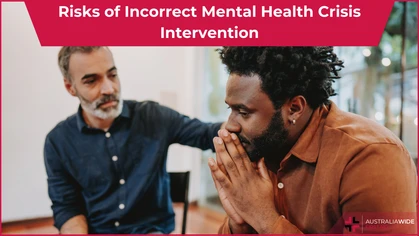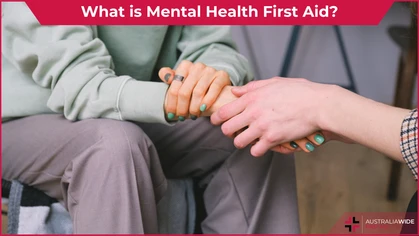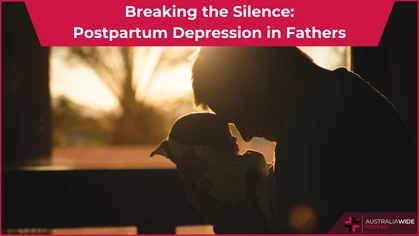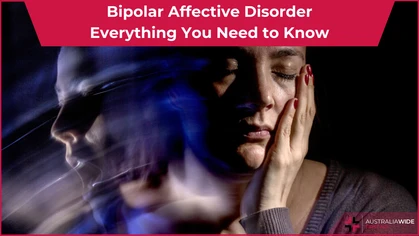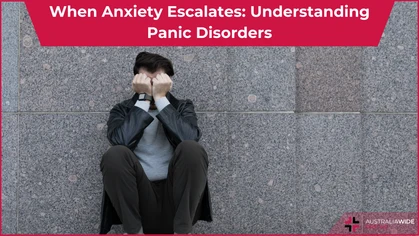5 Common Mind Health Issues in Women: Causes, Symptoms & Treatments

Mental Health
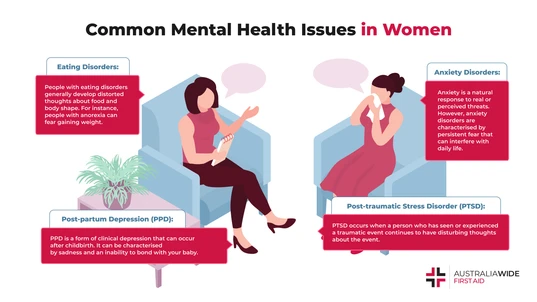
Mind health is vital to our overall wellbeing. Good mind health allows to us cope with everyday activities and stresses. Poor mind health can plague anyone. However, some mind health conditions are more common among women.
Mind health refers to a person’s mental and emotional state. When a person has good mind health, they can be productive during their day and make a meaningful contribution to their local community. Conversely, when a person’s mind health is disrupted, they can find it difficult to cope with everyday activities and stresses. Though everyone can be plagued by poor mind health, women are particularly susceptible to dementia, postpartum depression, eating disorders, and a host of other mental and neurological conditions. In fact, of the estimated 386,200 people living with dementia in Australia in 2021, almost 63% of them were women (according to the Australian Institute of Health and Welfare) It is important for women to recognise the mind health conditions for which they are most at risk. That way, they can pursue treatment options to manage the risk factors and symptoms, and ultimately live a full and happy life. To that end, we are going to explore the causes, symptoms, and treatments of common mind health issues among women.Dementia
Dementia refers to a host of neurological conditions that are characterised by impaired brain function, which can impact a person’s speech, mobility, behaviour, memory, and cognition. There are several different forms of dementia, including:- Alzheimer’s disease: Alzheimer’s disease is the most common form of dementia. It is a progressive neurological disorder that degenerates and kills brain cells and the connections between them. This causes the brain to shrink, and can destroy a person’s ability to memorise, perform everyday tasks, and respond to their environment.
- Vascular dementia: Vascular dementia is the second most common form of dementia. It occurs when conditions, such as strokes, restrict blood flow to the brain and deprive the cells therein of oxygen and nutrients. This can cause the brain cells to die, and for the person to experience impaired cognition skills, including reasoning, planning, and judgement.
- Lewy Body Dementia: Lewy body dementia is another form of progressive dementia. It occurs when proteins called Lewy bodies build up inside brain cells and damage them. People with Lewy body dementia can subsequently experience difficulties with concentrating and judging distances, and they can also alternate between periods of lucidness and extreme confusion.
Causes
- Alzheimer’s disease: It is thought that Alzheimer’s is caused by an abnormal build-up of proteins in and around brain cells, which damages them and their connections with one another. Scientists do not know what kickstarts this process, though they believe that age, family, and lifestyle choices (including pre-existing health conditions) may play a role.
- Vascular dementia: As we mentioned earlier, vascular dementia occurs when blood flow to the brain is restricted by a condition affecting the heart and blood vessels, such as stroke. As such, the risk factors for vascular dementia are the same as those for vascular disease, including age, family, and lifestyle choices (including pre-existing health conditions).
- Lewy Body Dementia: Scientists are still learning about the risk factors for Lewy body dementia. Age is currently considered the greatest risk factor. However, according to the National Institute of Aging, no specific lifestyle choice has been proven to increase a person’s risk of Lewy body dementia.
Treatments
No cure currently exists for Alzheimer’s disease, vascular dementia, or Lewy body dementia. However, you can manage several modifiable risk factors associated with dementia, including:- Heart health: Maintain your blood pressure, body weight, and cholesterol by quitting smoking, exercising regularly, and eating heart-healthy foods like berries, leafy vegetables, and wholegrains.
- Brain health: As with heart health, brain health can be boosted through regular exercise and a diet rich in fruits, vegetables, and wholegrains. Getting a good night’s sleep can also boost brain health.
- Mental health: According to Dementia Australia, depression has been associated with an increased risk of dementia. Support your mental health by socially engaging with friends and family and picking up new hobbies.
Generalised anxiety disorder
Anxiety is the body’s natural response to real or perceived threats. It is an emotion characterised by feelings of worry and tension, and it can sometimes be accompanied by physical symptoms like sweating, trembling, and a fast heart rate. Anxiety is not the same as an anxiety disorder, as people with anxiety disorders experience intense and excessive fear that persists beyond the stressful situation and into everyday life. There are several different types of anxiety disorders, including panic disorder, social anxiety disorder, and generalised anxiety disorder (GAD). Today we will be focusing on GAD, as it tends to affect women more than men (according to Beyond Blue).Causes
Generalised anxiety disorder(GAD) is characterised by chronic apprehension and worry, typically in relation to minor issues or events that are unlikely to occur. People with GAD tend to overthink plans and solutions with worst case scenarios in mind. As such, they can struggle with uncertainty, indecisiveness, and letting go of worry, to the point that it interferes with their daily life. A combination of factors can influence whether a person will develop GAD, including:- Stressful life events: For instance, the breakdown of a close relationship.
- Family history: People with GAD often have a history of mental health problems in their family.
- Personality traits: For instance, people with GAD often exhibit sensitivity, shyness, and/or an inability to tolerate frustration.
Symptoms
As well as chronically worrying about everyday life, people with GAD can experience:- Feelings of nervousness or restlessness.
- An impending sense of danger.
- Difficulty concentrating on anything except the present worry.
- Difficulty sleeping.
- Muscle tension and gastrointestinal problems.
Treatments
There are a variety of self-help and professional strategies for managing GAD, including:- Mindfulness meditation: This involves creating a calm state of body and mind to focus attention on the present moment.
- Exercise: Regular exercise increases blood flow to the brain, which enhances our mood and makes it easier for us to respond to stress.
- Cognitive Behavioural Therapy (CBT): CBT helps patients recognise the thought and behaviour patterns that contribute to their anxiety.

Postpartum depression is a type of depression that can occur up to 12 months after the birth of a child. It can be triggered by physical or emotional issues, and often involves thoughts of hopelessness and self-harm.
Postpartum depression
Depression is an umbrella term for mental health conditions that negatively impact how a person thinks, feels, and acts. There are several different types of depression disorders, including bipolar disorder, major depressive disorder, and postpartum depression (PPD). Today we will focus on PPD, as it is estimated that approximately 14% of women in Australia experience PPD.Causes
Postpartum depression (PPD) is a form of depression that can occur up to 12 months after the birth of a child. There are several factors that can contribute to the development of PPD, including:- Physical changes: During pregnancy, a woman’s oestrogen and progesterone levels are at an all-time high. Within 24 hours of giving birth, these hormones drop back to normal levels, which can affect brain chemicals and trigger symptoms of depression.
- Emotional issues: New mothers rarely get a good night’s sleep, which can lead to sleep deprivation and cause irritability, difficulty concentrating, and memory issues. Compounded with the constant demands of a new baby, this can lead to feelings of hopelessness.
- Social expectations: While trying to navigate life with a baby, new mothers may socialise less with their friends, family, and workmates due to time and money constraints. This shift in dynamics and loss of independence could subvert a woman’s sense of identity.
Symptoms
As well as feelings of hopelessness, symptoms of PPD can include:- Difficulty sleeping.
- Changes in appetite.
- Loss of interest and pleasure in activities you used to enjoy.
- Thoughts of harming yourself or your baby.
- Difficulty bonding with your baby.
Treatments
There are a variety of self-help and professional strategies for managing PPD, including:- Self-care: Take some time away from work and family, and use it to re-engage with old hobbies and interests.
- Social support: Connect with a local mother’s group, or simply talk to your closest confidants about your feelings and concerns.
- Counselling: Book an appointment with a mental healthcare professional for help with changing how depression affects your thoughts, feelings, and actions.
Anorexia nervosa
An eating disorder is a mental health condition in which a person develops distorted thoughts, behaviours, and attitudes about food, eating, and body shape. There are several different types of eating disorders, including anorexia nervosa (anorexia), bulimia nervosa, and binge eating disorder. Today we will be focusing on anorexia, as eating disorders are the third most common chronic illness in young women, with females significantly more affected than males, according to research shared by The Butterfly Foundation and partner data The Butterfly Foundation and partner data.Causes
Anorexia nervosa (anorexia) is an eating disorder signalled by an intense fear of gaining weight. Despite having an abnormally low body weight, people with anorexia generally view themselves as overweight and will restrict their caloric intake and exercise excessively to prevent or subvert weight gain. There are several factors that can contribute to the development of anorexia:- Psychological factors: People with anorexia tend to have a predilection for perfectionism, sensitivity, and low self-esteem.
- Cultural/social factors: Peer pressure and pop culture tend to exalt thinness as a mark of success, worth, and beauty.
- Genetic factors: People with anorexia often have a history of anorexia in their family, though it’s not yet clear which genes are involved.
Symptoms
A variety of different behavioural and emotional symptoms can signal anorexia, including:- Severely restricting food intake through dieting, fasting, or by inducing vomiting after a binge eating episode.
- Exercising excessively.
- Repeatedly weighing, measuring, or checking the body in mirrors for any flaws or signs of weight gain.
- Lying about food intake and making excuses for not eating.
- Insomnia, irritability, and social withdrawal.
Treatments
Anorexia can be difficult to treat, as many sufferers may not view their symptoms as problematic or harmful. However, there are plenty of professional treatment options available, and recovery is very much possible:- Psychotherapy: Including cognitive behavioural therapy (CBT), which can help normalise behaviours and eating patterns that support weight gain.
- Nutrition: People with anorexia are often at risk of malnutrition, so it’s important they learn how to nourish their body with the support of a dietitian, primary care doctor, and mental healthcare professional.
- Medical care: If a person with anorexia is suffering from severe malnutrition, they may need to be hospitalised so their vitals can be monitored and electrolyte balance restored.

Brain fog is a set of symptoms that can make it difficult to think, including feelings of confusion, fatigue, and a lack of mental clarity. Brain fog can be triggered by the hormonal fluctuations experienced during menopause.
Brain fog
Brain fog is not a medical condition – rather, it is a set of symptoms that can affect your ability to think.Causes
Brain fog can be triggered by a variety of contributing factors, including:- Hormonal changes: The drop in oestrogen experienced during menopause has been shown to cause forgetfulness, poor concentration, and cloudy thinking (according to Healthline).
- Stress: Chronic stress forces your brain to be on high alert at all times, which can subsequently exhaust the brain and make it difficult to think, reason, and focus.
- Lack of sleep: Poor sleep quality can make it difficult for brain cells to communicate with one another, and so can lead to temporary lapses in memory and visual perception.
Symptoms
When a person experiences brain fog, they may find it difficult to focus or put their thoughts into words. It can also be characterised by:- Feelings of confusion or disorganisation.
- Feelings of fatigue.
- Poor concentration.
- Memory issues.
- A lack of mental clarity – the ability to recognise, understand, and organise your thoughts.
Treatments
There are a variety of self-help and professional strategies for managing brain fog, including:- Getting a healthy amount of sleep, as this allows the brain to learn and create new memories, form and maintain new nerve connections, and thereby support learning, memory, and mood.
- Exercising regularly, as this supports the release of feel-good endorphins in the brain that have an analgesic effect, and so can reduce stress while improving the ability to sleep.
- Eating well, as a diet rich in wholegrains, vegetables, and fruits can provide vitamins, minerals, and nutrients that help curtail inflammation and make the brain run smoothly.
Final thoughts
Mind health is vital to our overall wellbeing, as good mind health allows us to cope with life's stresses and make meaningful contributions to the local community. Poor mind health is not unique to women. However, women are particularly susceptible to a handful of mental and neurological conditions, including dementia, generalised anxiety disorder, postpartum depression, anorexia nervosa, and brain fog. Though some of these conditions may require medical treatment, many of their risk factors can be managed at home by nourishing the body with good food, good sleep, and plenty of supportive therapies. For more information on how to proactively manage your health and wellbeing, head to our website and book a First Aid course with us today!
Originally published at
https://www.australiawidefirstaid.com.au/resources/women-mind-health-issues
as part of the Australia Wide First Aid Articles Library

